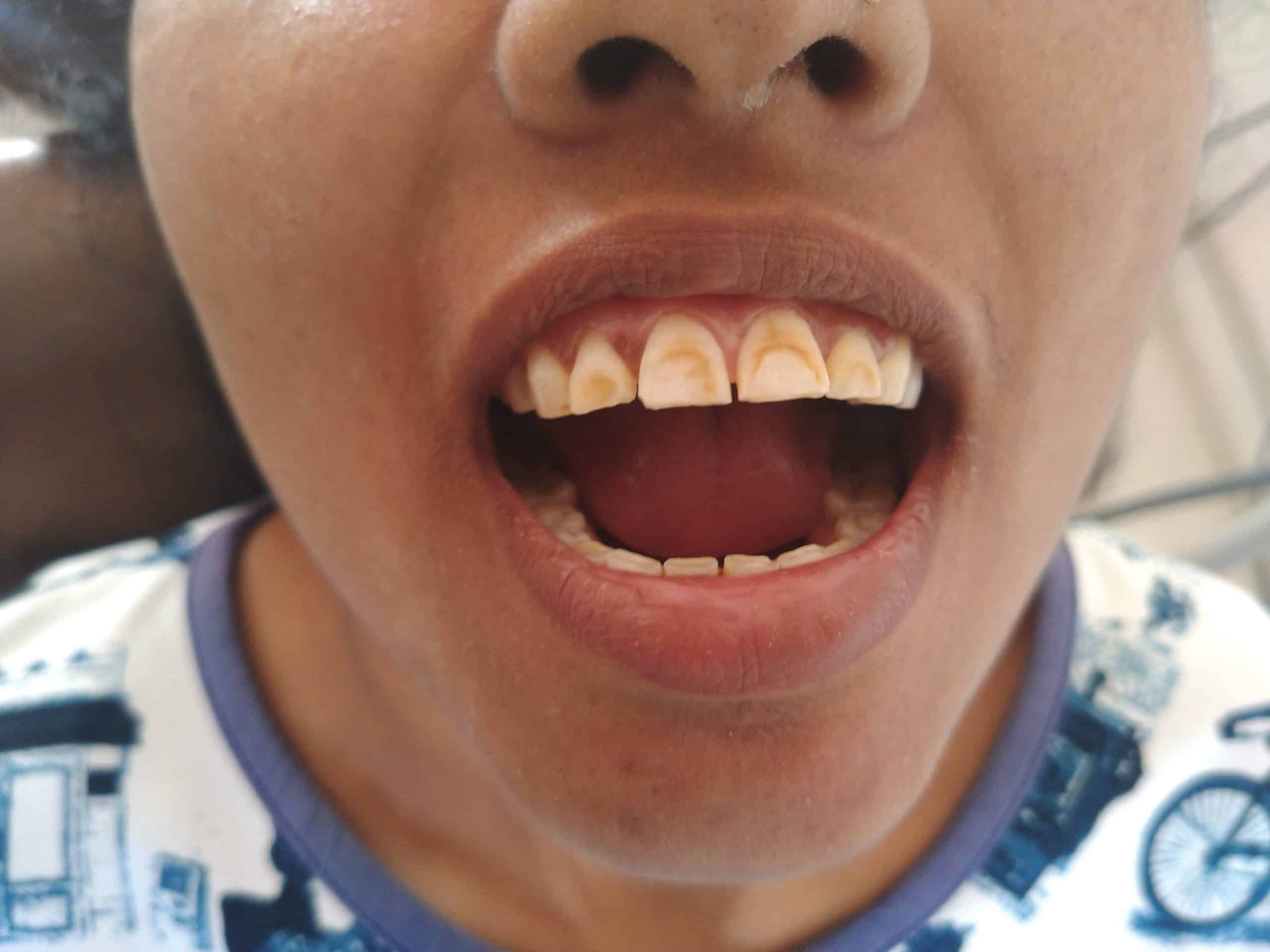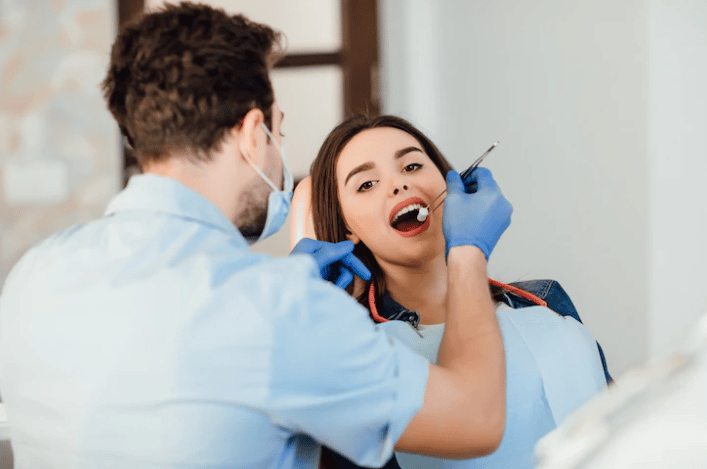Remove Stains of Smoking Teeth
Last updated Thursday, July 18th, 2024
 What would you say if there was a product designed to kill its consumers even if they use it exactly as it was designed to be used?
What would you say if there was a product designed to kill its consumers even if they use it exactly as it was designed to be used?
You must be thinking – “Outrageous! They’d be sued to the ground if someone tried to release a product like that.”
Here’s your reality check – it exists! It’s called a cigarette – and it’s been staining smiles and snatching lives for hundreds of years now. America lags behind the rest of the world when it comes to putting graphic warning labels on cigarette boxes.
It’s difficult to digest, but it’s better to be turned off smoking looking at a warning label rather than turning your own life into a cautionary tale.
A lot of people start off smoking just because it looks cool, but wait till you see how it turns into an attraction killer when it stains your teeth brown and makes you afraid to smile. It’s not just your pretty smile, but your whole life at stake.
We’re not going to lecture you to quit smoking. Everyone has their own dreams and desires to live for. The truth is smoking will take them away from you no matter what you choose.
In this article, we’ll explore the biggest dangers of smoking, the benefits of quitting it, and what you can do to reclaim your glowing white smile again.
Ready to Reclaim Your Beautiful Smile?
CALL (480) 780-1511
Take control of your life and give yourself the smile you deserve! With our $99 New Patient Special, the time to book your appointment with your Gilbert dentist now!
Harmful effects of smoking
Every puff of smoke is snuffing out your life in installments.
It’s important to recognize the most dangerous effects of smoking before you get into a committed relationship with this habit.
Here’s some not-so-fun facts about smoking that you should know about:
- One cigarette can steal 11 minutes from your natural lifespan
- Every six seconds, someone loses their life to a tobacco-related health issue
- Tobacco is one of the leading causes of cancers in almost every major organ of the human body
Here are some of the most serious diseases directly linked to smoking:
- Lung cancer
- Cardiovascular disease
- Strokes
- COPD
- Diabetes
- Emphysema
- Chronic bronchitis
- Damage to blood vessels, airways, and lungs
Benefits of quitting smoking

But here’s the upside – at least you’ll have a life.
It’s never too late to quit and experience a ton of amazing benefits like:
- Increased immunity
- Normalization of nicotine receptors
- Improved blood circulation
- Regrowth of nerve endings
- Lowered inflammation
You can quit cold turkey or you can progressively cut down the number of cigarettes you smoke day by day. Either way, you’re on the right track.
You’re freeing your body and mind from slavery to a habit that gives nothing and takes away everything.
Don’t be intimidated by the withdrawal effects. They’ll fade away within two weeks. It’s just your body detoxing and returning to a healthy balanced state.
Besides, you don’t have to wait for years to see the benefits kick in.
Your blood pressure and heart rate will start normalizing 20 minutes after you quit smoking.
Within 12 hours of quitting, your nicotine levels and blood oxygen levels will be as good as a non-smoker.
Your body is totally nicotine-free after 72 hours and your damaged nerves and lung tissue will start healing.
Your blood circulation levels will be equivalent to a non-smoker after two weeks.
In the long run (one to five years), your risk of suffering from nearly all the harmful effects we mentioned earlier will be minimal.
Effects of smoking on dental hygiene

90% of people diagnosed with mouth cancer are tobacco users. Also, cigarette smokers are 80% more at risk of developing gum disease and bone loss. Smokers are also five times more likely to lose their teeth than non-smokers.
Here’s how smoking starts damaging your dental health:
- Stained teeth
- Increased plaque and tartar
- Bad breath
- Gum diseases
- Inflammation of salivary glands
- Bone loss in your jaw
- Oral cancer
- Importance of frequent dental cleaning and quitting smoking
Effects of smoking on fertility and pregnancy
It’s not just your own future you’re smoking away, but the possibility of raising a family that’s going up in smoke. Smoking can seriously impact your fertility levels. It doesn’t matter if you’re a male or female. Your reproductive health can be severely compromised if you keep up your smoking habit.
An average non-smoking couple will be able to conceive within a year of trying to have a baby. However, smokers are 50% less likely to conceive in the same time span.
Here’s how smoking affects the reproductive health of men:
- Reduced semen volume
- Low sperm density
- Poor sperm motility
- Greater DNA fragmentation in sperm
- Improper shaping of the sperms
Infertile smokers report high levels of cadmium and lead in their system, which invades their system through cigarettes.
Here’s how smoking affects the reproductive health of women:
- Damages the womb lining
- Damage to the developing eggs
- Blockages in fallopian tubes
- Increasing risk of ectopic pregnancy
- Hormonal imbalances
- Premature aging of the ovaries
There’s one important difference between the fertility risks faced by men and women. Men can keep manufacturing new sperm all their life, but women are born with a fixed number of eggs. Once smoking damages them, there’s no way to regenerate them.
This dangerous habit can even dramatically damage your ability to conceive through fertility treatments like IVF.
Brown stains on teeth caused by smoking
Your smile is the most attractive thing you wear. So when the nicotine and chemicals in your cigarettes turn your teeth brown, they’re robbing something really precious. Brown stains in your teeth are one of the most common and fastest side effects of smoking. It only takes a couple of months of regular smoking for them to show up.
The severity of smoking-related brown stains in your teeth are influenced by a number of factors, such as:
- How often do you smoke?
- What kind of tobacco product you use?
- How effective is your oral hygiene routine?
- How effective are your genetics in preventing it?
The best thing you can do to clean these stains is to quit smoking.
The next best thing is to choose from any one of these three teeth whitening solutions to reclaim your beautiful smile:
Professional teeth whitening

It pays to visit an experienced dentist who can give you the whitening results you would’ve spent weeks to get in just one short session.
They’ll also do a deep inspection of your teeth to spot any other issues that could cause bigger problems if left untreated. Your dentist will know exactly what strength of bleaching agent and what kind of whitening gel suits your teeth.
They will also give you preventative treatments to strengthen your enamel before starting the whitening procedure if needed.
Over-the-counter teeth whitening products
You can find a variety of teeth whitening gels, strips, or bleaches available in the market for removing smoking stains. There are some products like crest trips that are safe to use for most people as long as you follow the instructions properly.
However, most DIY bleaching options should be prescribed by your dentist and only used as per their guidance. Trying to bleach your crowns, filings, and veneers will not even work. So it’s best to consult your dentist before you start experimenting with these products.
Simple at-home dental care
Here are a few easy solutions you can try at home for removing milder stains in your teeth:
- Brushing your teeth with a paste of baking soda and hydrogen peroxide for 30 seconds
- Brushing your teeth after smoking
- Brushing your teeth while using a mouthwash
- Rinsing your mouth with a mixture of water and hydrogen peroxide
Frequently Asked Questions
Can the effects of smoking be reversed?
Yes. It’s never too late to kick the habit. You’ll start experiencing short-term benefits like your BP and heart rate normalizing within 20 minutes of smoking your last cigarette.
Within a couple of weeks, your blood circulation, hormonal and oxygen levels will be as good as a non-smoker. Your nerves and lung tissue will start healing quickly.
And within one to five years, you’ll be free from the risk of most major health disasters linked to smoking.
How does smoking impact the immune system?
A cigarette is a toxin cocktail full of nicotine, tar, and thousands of chemicals that can severely damage your immune system.
Nicotine can sabotage the production of your white blood cells, which are vital for fighting infections.
The carbon monoxide injected into your bloodstream will choke the oxygen out of your cells.
It also boosts your cortisol levels, which are linked to stress. The greater your stress levels, the more compromised your immune system becomes.
Is it possible to have healthy teeth while smoking?
Impossible. Your mouth gets the most direct exposure to the toxin cocktail-packed torch of death AKA cigarette. Not even the best dental hygiene routine can save your teeth from the consequences of smoking regularly.
How does smoking affect fertility and pregnancy?
It’s twice as challenging for an average smoker to conceive compared to an average non-smoking couple. The only guarantee is both male and female smokers will have below average fertility rates if they keep up their smoking habit.
It can severely impact the sperm production and quality in males while damaging the eggs, ovaries, and womb linings in females.
Can brown stains on teeth caused by smoking be removed?
Yes. There are three popular teeth whitening solutions you can follow to get rid of the brown stains in your teeth caused by smoking:
- Professional teeth whitening
- Over-the-counter teeth whitening products
- Simple at-home dental care
Get Started On Your New Smile
It's time you stop putting off your next dental visit. Whether it's a general check-up or a complex restorative or cosmetic procedure, the time to book your appointment is now!

